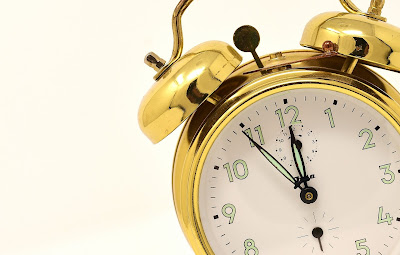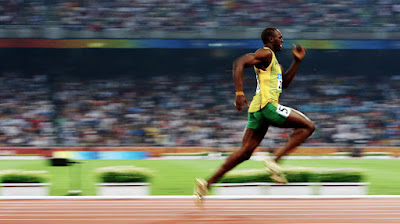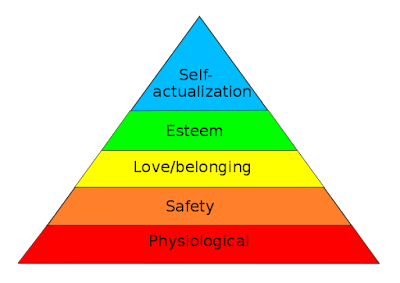Differentiating Between Correlation And Causation Could Make All The Difference
One dangerous conclusion we always make is substituting correlation to be causation. Many times, when it is convenient for the narrative we're trying to pursue, it is common to blur the lines between correlation and causation. Or even delete it in some cases.
Yet, knowing the difference between correlation and causation can make all the difference in your career and life as a whole.
According to the Merriam-Webster Dictionary, correlation is the relationship between things that happen or change together while causation is the act or process of causing something to happen or exist. Causation is also called cause and effect.
Correlation and causation affect almost everything in life. Because if you look closely, there are always variables that are correlated with an outcome and also causes of that outcome. In some cases, correlations are also causes.
What you find is that it’s usual to have more correlations than causes. It is important to find the causes of successes or failures to determine the right actions to take for improvement.
Our brains find patterns in randomness and it’s easy to jump to conclusions about the cause or causes of an event.
Does talking cause walking?
If Victoria always talks when she walks with her friend, Catherine, we can say there's a correlation between Victoria walking and talking.
But it'll be erroneous to say walking caused the talking or talking caused the walking. Because it's possible, in fact likely, for Victoria to walk without talking if she's walking alone. Likewise, it's possible for Victoria to talk while sitting with Catherine.
Perhaps, a more likely causation, in this case, is the fact that she's with her friend. Whether they're sitting, standing, walking, or even flying, there's still a high probability they'll be talking.
Does bad smell cause diseases?
Before the 19th century, the widely accepted assumption was that bad smells caused diseases. Most times, disease is correlated with bad smell. But is it the bad smell that is causing the disease?
Let's say a man is down with cholera, then we’ll clean his house because we believe bad smell caused it. You know that this man will still likely be sick of cholera even when his house is clean.
It sounds weird to think of it today but it was common sense back then. Until it was discovered that germs are the cause of both the sickness and the bad smell.
This improved health care because physicians started looking for how to kill germs rather than only keeping the environment clean. This is how powerful correlation and causation can be.
Getting causation wrong can lead you to a dark path that contributes nothing to the solution you're looking for. And you may continue to waste time and resources until you discover the real cause of your outcome.
Does the number of hours worked cause wealth?
Most rich men work for many hours daily. There is a correlation between the number of hours worked and wealth. But does that mean you'll be a millionaire if you start working 15 hours daily from today? Regardless of the work you're doing?
If that was the case, people who worked for the highest number of hours will be the richest. But that is not so. People who are rich work for many hours daily but they may be doing different things during those hours, compared to a poor man who works for many hours.
Warren Buffet, one of the world's richest men, is known to read for many hours during the course of a day. This is what works for him, but that's not what every billionaire is doing.
One thing you can be sure of, however, is that whatever they do contributes a lot to their wealth and influence.
Does the number of hours worked lead to expertise?
There is a correlation between the number of hours practiced and expert performance. But research by Anders Ericson showed that it's not the high number of hours that lead to expert performance but most importantly the type of practice sessions carried out during the hours spent.
Anders Ericsson discovered that most expert performers have spent an average of 10,000 hours in practice. But it’s not just ordinary practice that repeats the same task for 10,000 hours.
It is deliberate practice. Deliberate practice with the aim to improve specific aspects of performance is a cause for expert performance rather than the number of hours spent in practice.
Will you be a great basketballer if you are tall?
There's a correlation between physique and great sportsmen. There's a correlation between height and great basketballers. Michael Jordan is 6 feet 6 inches, Kobe Bryant is 6 feet 6 inches, and LeBron James is 6 feet 8 inches. Can we say a tall man will be a great basketballer by virtue of just being tall?
Well, there are thousands of basketballers who are as tall as the height quoted above that we don't even know. There are men as tall as that who are not even basketballers.
If height was the cause of greatness in basketball, then the tallest basketballers will be the best right? Then Michael Jordan wouldn't be one of the greatest ever basketballer since there are many basketballers who are taller than him.
Great basketballers are tall but height is not the main cause of their expertise since an average basketballer is taller than the average population.
How to detect causation
· Observation
When two people look at the same place, they see different things. And one of them will see more features of the place. Because they have a better power of observation.
But the power of observation is not a trait that has a fixed amount for everyone at birth. Your power of observation can be improved upon. You just have to train it by looking at a place with the consciousness that there is still more to discover.
Most times when we see an outcome, there is usually an obvious feature that resembles its cause. Sometimes it is actually the cause but many times, it's not.
But it is easy to run away with whatever is obvious and label it as the cause. That's what most people do and that's why they continue doing what they think is the cause. Which may be wrong sometimes.
To train your power of observation, you must always question the obvious. Is there something that is hiding in plain sight? Are there other causes you can't see.
Observation can lead to more discoveries about the causes of an outcome.
· Testing
Let's say you sleep for 8 hours daily, do exercises for 30 minutes daily and get to work 2 hours earlier than your coworkers. If you’re an expert performer, you can say all these things contribute to the amount and quality of work you get done daily.
But does one of those activities have more effect on the quality of your work? This is where AB testing comes in. To perform adequate tests, you keep other factors constant and change a single factor to see its effect.
For instance, you can leave other factors constant, and get to work 3 hours earlier. Then track your performance over a period of time to see if it has a big effect. You can perform the same tests for the number of hours slept or amount of exercises done.
In some cases, you may find that there is even a factor different from the 3 I listed that has more effect on your productivity. This is the importance of testing.
With testing, you can change different factors and track how they affect your results. Through this, you can detect the factors that have bigger effects and those with negligible effects.
More views
There are many reasonings about causation/causality.
David Hume said concerning causality that beliefs about causality are based on experience, and experience similarly based on the assumption that the future models the past, which in turn can only be based on experience, leading to circular logic.
Aristotle argues that there are four causes for most things: matter, form, agent, and end or purpose.
In many cases, causality cannot be determined perfectly because we can't rewind history and change the causes to see if it’ll change the result we got. But it’s still better than having no idea about causes of outcomes.
Conclusion
When people equate correlation to causation, especially on important issues, it can lead to erroneous beliefs and mindset. Which can influence lifestyle and hamper achievements in many cases.
There are many great and successful people in the world and many that have once lived on the earth. There is no single cause for greatness of these people. But each of them was able to discover the activities that caused their success and do more of those.
Getting causation right means you can do more of what's really producing results and do less of what's wasting your time and resources. Getting causation wrong means you're in the dark and may be losing many opportunities for improvement.
How do you distinguish between correlation and causation? I'd love to hear your views in the comments!
To read more about personal and career development, visit the home page.
If you want me to write for you or your business, I’ll be delighted to help you achieve your targets through copywriting.






In the testing stage, if I realize a keystone variable can this be the causation while others are simply correlation or this is a big assumption?
ReplyDeleteI think that's left for you to decide..
Delete